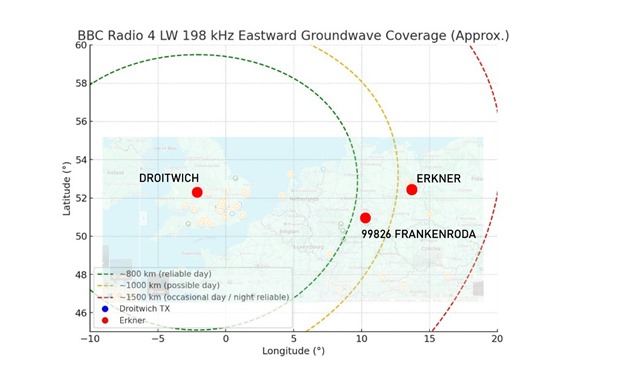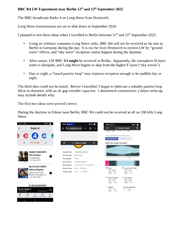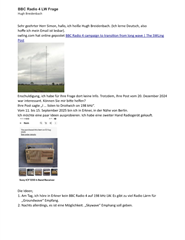What programme will mark this closedown?
The BBC broadcasts Radio 4 on Long Wave from Droitwich Transmitting Station, which is owned and operated by Arqiva.
Plans for ending Long Wave broadcasts have been announced and postponed. Online sources suggest that a final date has been announced as September 2026.
I cannot find an authoritative source to confirm this.
- If you go in person to find a point of contact at Broadcasting House, you will merely get directed to a “WhatsApp” mailbox that is not monitored.
I am a volunteer for the IET Local Network Germany, where R4 LW has been a lifeline to ex-pats. I have also conducted a very basic experiment to measure radio reception in Berlin, with assistance and advice from amateur radio experts. This is detailed in the links below.
Nostalgia aside, BBC Radio 4 Long Wave has served UK business, culture, and defence, from maritime broadcasts to national contingency communication. A programme to duly commemorate the closedown ought to be in the pipeline. A number of people would like to contribute to it.
The professional engineering institution most closely linked with the BBC is the IET. Can anyone recommend a BBC contact please?


